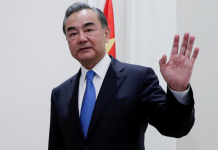Facing crude prices below $30 per barrel, Russian Finance Minister Anton Siluanov in a January 16 television interview said Russia now faced a RUB 1.5 trillion budget deficit ($38.6 billion at the time of the interview) and that this would force the government to rework the budget it approved in December, which was based on $50 Ural crude prices. Reworking, according to Siluanov, will entail cutting RUB 500 million in spending (from which the military, national security, and agriculture would be exempted) and finding RUB 1 trillion in additional revenue.
Finding this RUB 1 trillion confronts the Russian government with unpalatable choices. Russia’s sovereign wealth/reserve funds have been proposed as sources—but in September, Siluanov warned that they would be depleted in sixteen months.
The Russian government is also contemplating asset sales (including part of its stake in Rosneft and in VTB, a major bank), but such sales would provide one-time boosts to revenue and in any case would take time to organize. Borrowing is a possibility, since Russia’s sovereign debt is low, but the Russian government can’t access U.S. and European capital markets, closed to it due to U.S. and EU sanctions related to the conflict over Ukraine).
The Russian energy industry is also a target—and potentially a lucrative one, given the structure of Russian taxes on the industry. In 2015’s first three quarters, for example, low crude prices decreased the revenues the Russian government collected in export customs duties from Rosneft, Russia’s largest producer, by RUB 520 billion (RUB 1058 billion to RUB 738 billion), while taxes other than income taxes increased only RUB 80 billion, from RUB 919 billion to RUB 1009 billion).
It is therefore not surprising that in September, the Russian Finance Ministry attempted to increase the mineral extraction tax. Industry opposition and opposition from other Russian ministries—citing the negative impact on investment and output—forced it to back down (Venezuela is an example, admittedly extreme, of what happens when government raids on industry revenues to fund current operations squeezes investment). It proposed instead to slow down the planned decrease in crude export duty rate (from 42 percent to 36 percent. Also under consideration is a windfall profits tax on Russian energy exporters benefitting from the Ruble’s depreciation.
Deteriorating Energy Industry Conditions
The situation of Russian energy producers is also difficult. The Telegraph (UK) in early January quoted Russia’s deputy finance minister, Maxim Oreshkin, as telling TASS earlier this month that low crude prices could lead to “hard and fast closures in coming months.” The article also said noted that in the key Soviet-era fields in western Siberia, the annual rate of depletion is averaging 8 percent to 11 percent, while new projects are being curtailed.
According to the Telegraph, Transneft, the Russian crude and product pipeline monopoly, estimated that Russian crude exports could decrease in 2016 by some 460,000 barrels per day, based on producer applications for pipeline capacity.
In an interview with TASS, the Russian news agency last week, Lukoil Vice President Leonid Fedun commented that Lukoil was unlikely to produce the one hundred million tons it produced in 2015. He also said that it made more economic sense to sell one barrel of oil for $50 than two barrels for $30.
Gazprom, Russia’s natural gas giant, shows signs of stress. In recent weeks, it has instituted a series of cuts in investments. January 11, Reuters reported Gazprom cancelled one tender in December and three tenders in January for work on the construction of the Ukhta-Torzhok pipeline, a domestic key component of pipeline system which will transport natural gas directly to Germany through the Nord Stream II pipeline. According to Reuters, Gazprom Neft (of which Gazprom is the majority shareholder) recently terminated negotiations to acquire a 49 percent stake in Vietnam’s Binh Son Refining and Petrochemical, a subsidiary of Vietnam’s state-owned PetroVietnam.
A January 15 Reuters article quoted “sources close to Gazrpom” as saying that Chinese economic problems and low energy prices have reduced the volume of natural gas Gazprom expects to export to China via the Power of Siberia pipeline—the project on which Gazprom has bet its future—when it is completed. Given the already questionable economics of the Power of Siberia project, reduced volumes will intensify doubts about the project’s financial viability and future (Putin Is Taking A Big Risk With China Gas Deals).





